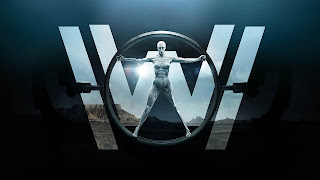In decision making, and planning, the challenge is dealing with ambition, success, and visions of the future. It can become overwhelming. We all end up having imposter syndrome, judging ourselves based on criteria set by others. It comes down to managing expectations.
If you give generously, you typically receive back. Give generously without expectation. When the world disappoints us, that is when we start judging ourselves harshly. Waves that bother us most are dealing with our own demons. Shadows to work on. When someone gets angry at you, it is often not you. It is their own projections. It is their struggle crying out. If someone is being harsh on you, you can imagine that they are probably incredibly harsh on themselves in their head.
We are so deep soaked in this idea of ambition, that we all end up beating ourselves up. Feeling like we are a bit of a failure. We project that on others. When you are struggling with other people thinking maybe you are not good enough, they are probably struggling with the same thing. Because we think in categories, we divide people into good enough and not good enough.
Meritocracy in its historical context, was compared to hereditary privilege. When people used to be born into wealth. Who someone’s parents were, determined their predefined role in life. Caste systems or Feudal systems were ways of categorising people.
Now we have companies as containers and that is how we make sense. We want social mobility. We want people to be able to choose their own stars. That creates a lot of ambition. We are trying to unpack the unintended consequences of some of the stories we use to coordinate and cooperate. Many of these stories run deep. Unwinding the mess requires micro-ambition, because they are so deeply connected to things we care about.
Free Will is possible. But, It is hard. You must do the work. If you want to make good decisions, understand how you make decisions. Narrative Therapy is brought to life in the TV Series “Westworld”. We all have cornerstone events, drivers, and coding that determines how we respond to complexity, ambiguity, and randomness. The more aware you are of who the character you are playing is, the more conscious you can be of what perceptions, habits, and scripts need editing. It will not just happen. We embody our impression of ourselves deep beneath the surface. We seldom change through weekend epiphanies. Monday morning always arrives. Change must be sustainable.
Understanding yourself requires going deep into the stories we forget on the surface. You must dig, and ask questions, tracing back like a detective. Why do you respond in the way you do? Why is that important to you? What are you trying to prove? Who are you trying to prove it to? Do you really want to prove it?
Tacit knowledge means you are best placed to make your decisions. This is true. But interrogate the process. Look back into your history and understand your context. Even though you are best placed to make your decisions, you need to be in conversation with yourself. Learning, unlearning, and with constant feedback. Pause for reflection. Pause for understanding and gaining knowledge into yourself and why you made the choices that you did. Do they reflect what truly matters to you?
Try and understand the way that you think. Why things matter to you. We all have different value sets, and you want to know what those values are. What the trade-offs are. Quite often a decision is neither good nor bad, it is just a case of different weightings. Everything has consequences.
In Ursula Le Guin’s Earthsea, the main character is Ged. In that universe, power is gained by being able to see, and name, something’s essence. By acknowledging what something truly is, the wizard has the power to change it. The arch of the story is Ged’s battle against the most powerful evil wizard that has ever lived. A shadow. When he discovers the shadows name, he realises it is his own. Our deep shadows are part of understanding who we are. Understanding your decision making, is finding out what your story is.
People will say “Don’t carry your history with you”, “let it go”, “live in the now”. I am not one of those people. I live in my history. I am always curious about why I think the way I do, and what built that up. I know there is path dependence. I know that because of various events, my life could have gone another way. As I get older and new things happen to me, it changes my memory. I like reflecting on memories repeatedly, and saying, “Okay, well now I see things differently.” You are having a conversation with your past self to understand how your values have evolved.

No comments:
Post a Comment